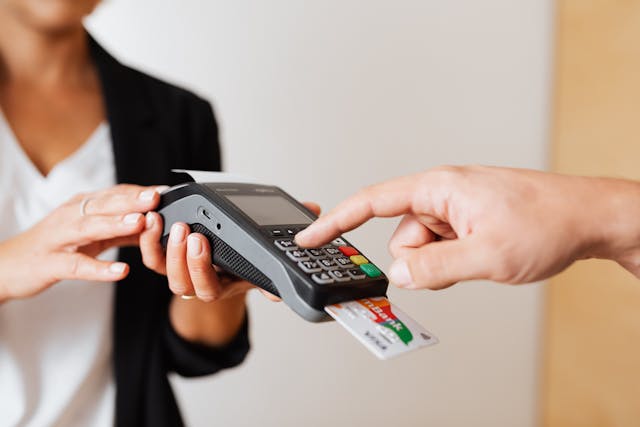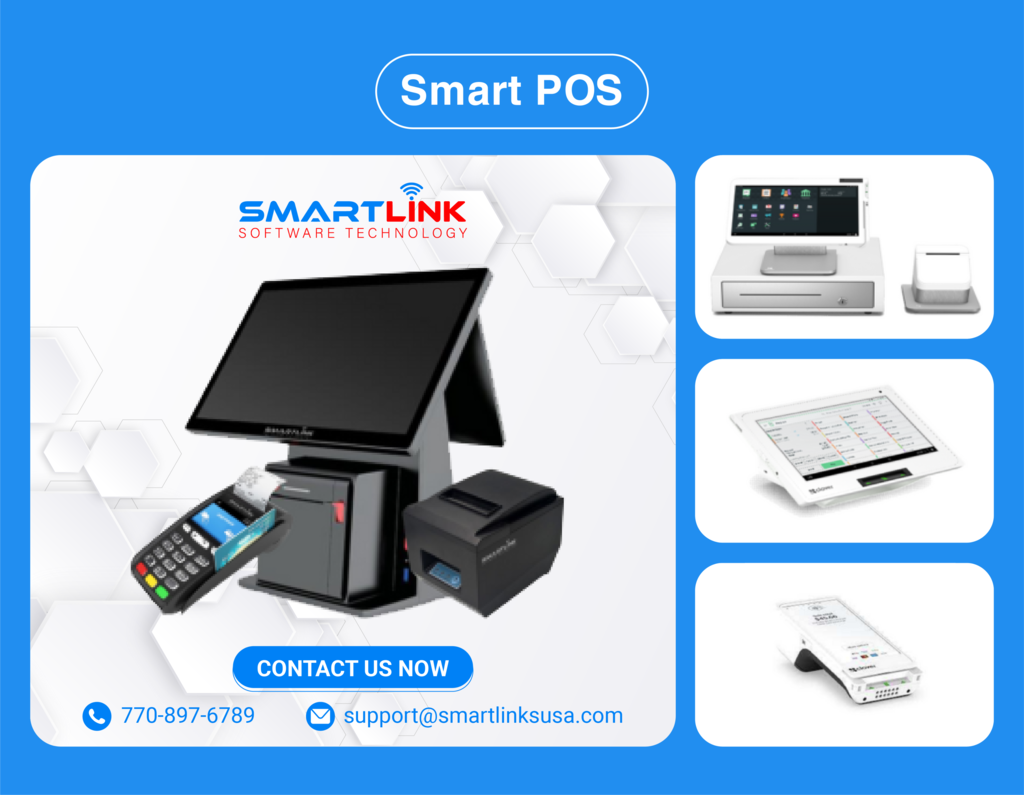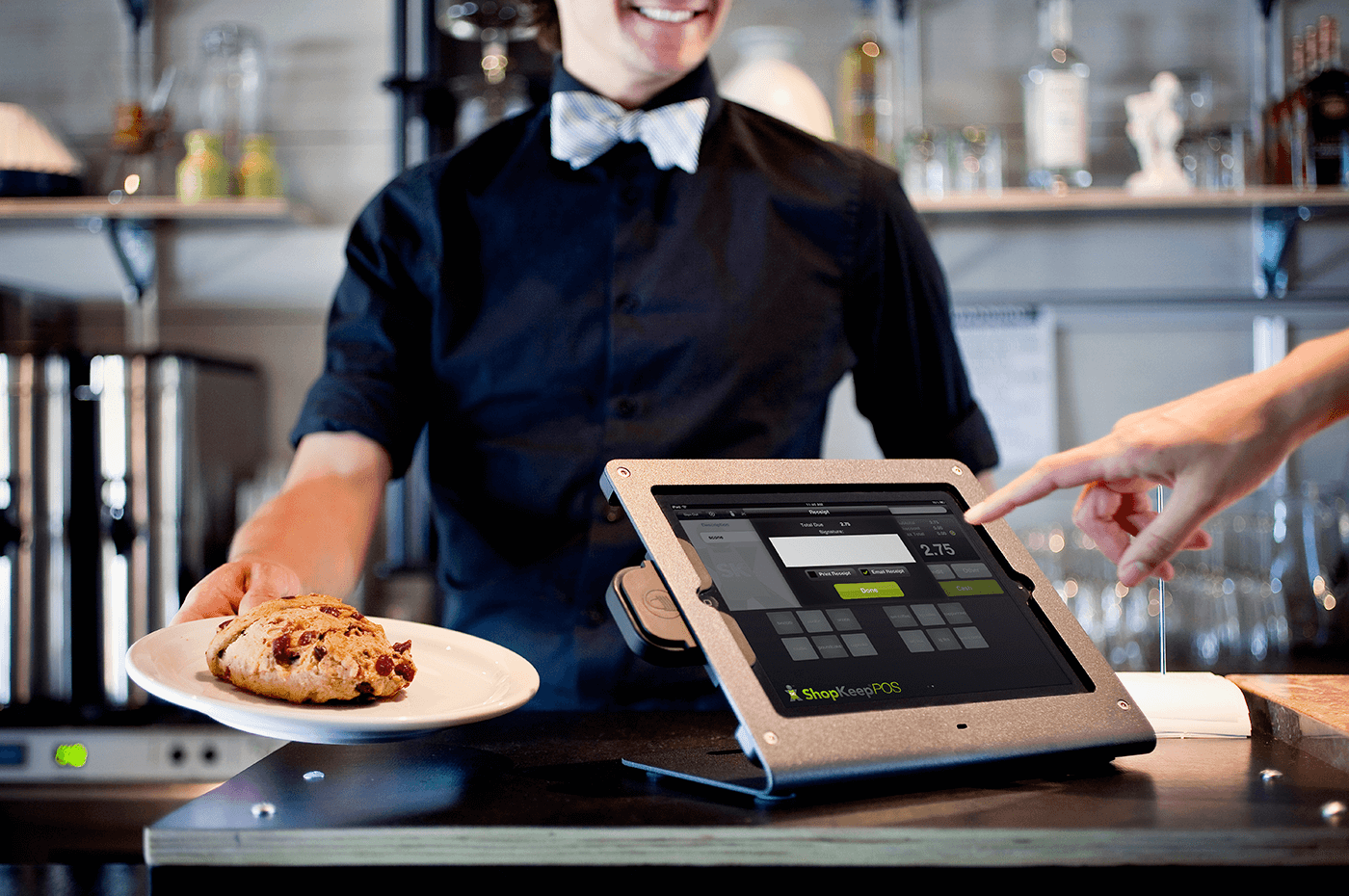The handheld POS machine is a game-changer, revolutionizing how businesses operate and manage their sales. Now a common sight in most stores, it speeds up transactions without compromising on precision, making every payment seamless and efficient.

What exactly is a handheld POS system, and what should you consider before choosing one? Let’s explore these questions with Smartlink in this article.
1. What is a handheld POS machine?
POS, short for "Point of Sale", refers to an electronic device that emerged during the revolution in payment processing. With its compact design, the handheld POS system functions like a mini cash register, optimizing the speed and precision of transactions, especially those made via card payments.
2. Features of handheld POS machine
High mobility
The primary advantage of handheld POS devices is their portability. Thanks to their compact design, these devices can be easily transported to various locations, from stores to outdoor events.

For instance, in a restaurant setting, staff can bring the POS machine directly to the table to process orders and payments, eliminating the need for customers to wait at the cash register. This not only improves service quality but also helps reduce revenue losses for the business.
Built-in receipt printer
Many handheld POS devices today come equipped with a built-in receipt printer, enhancing the checkout process. This feature saves time and paperwork while providing customers with a more professional shopping experience.
Easy connectivity
Handheld POS devices often support Wi-Fi or Bluetooth connections, allowing seamless integration with other devices such as smartphones or tablets for efficient sales management.
Integrated sales management software
When paired with sales management software, a handheld POS becomes a powerful tool. It helps streamline everything from managing products, staff, and customers to tracking revenue, making operations more efficient and professional.
3. Benefits of using handheld POS machine
Faster transactions
Handheld POS devices ensure that payments are processed smoothly and swiftly. Customers no longer need to queue up for long, as wait times are significantly reduced. This not only enhances the shopping experience but also encourages customers to return for future purchases.
Minimizing errors
The POS machine automatically calculates the total amount and prints receipts on the spot, ensuring the accuracy of every transaction. This reduces human error from manual calculations, increasing customer trust and minimizing potential disputes.

Efficient order management
All transactions are automatically recorded and stored in the POS machine. You can easily monitor, track, and manage orders with high accuracy and transparency, saving time and ensuring efficient daily revenue management.
When should businesses choose a handheld POS device ?
For businesses needing mobility
Handheld POS machines are ideal for cafés or restaurants where staff need to move between tables for payments. Customers can pay directly without having to visit the cash register.
For mobile or temporary businesses
Food trucks, fairs, or pop-up stores that frequently change locations will find handheld POS devices to be the perfect solution due to their lightweight design and flexibility.
For small businesses looking to save space
For small stores, handheld POS machines not only save space but also meet all sales needs, from processing payments to managing orders and printing receipts.
4. Considerations when buying a handheld POS machine
Relevant features
When selecting a handheld POS machine, ensure that its features align with your business needs. For instance, check if the device supports receipt printing, barcode scanning, and payment methods like credit cards and e-wallets. The POS should include all necessary functions to make sales efficient and straightforward.
Size and durability
The POS machine should be compact and easy to handle, allowing staff to use it flexibly in any situation. Durability is also crucial, especially in environments like restaurants where devices are prone to accidental drops or exposure to liquids.

Battery life
A handheld POS device should have a long battery life to operate throughout a full workday without needing frequent recharging. Be sure to check the battery capacity and maximum usage time before making a purchase.
Connectivity
A POS machine must connect reliably to sales management systems, Wifi, or mobile networks. Poor connectivity can disrupt payment processes, negatively impacting both customer experience and staff performance.
Cost and warranty
While price is an important factor, don't sacrifice quality for affordability. Choose a product with a good warranty and technical support to ensure that your POS machine functions smoothly and reliably in the long term.
Conclusion
This article has provided key insights into handheld POS machines by Smartlink. We hope that this information will help you choose a suitable and effective POS machine for your store.



